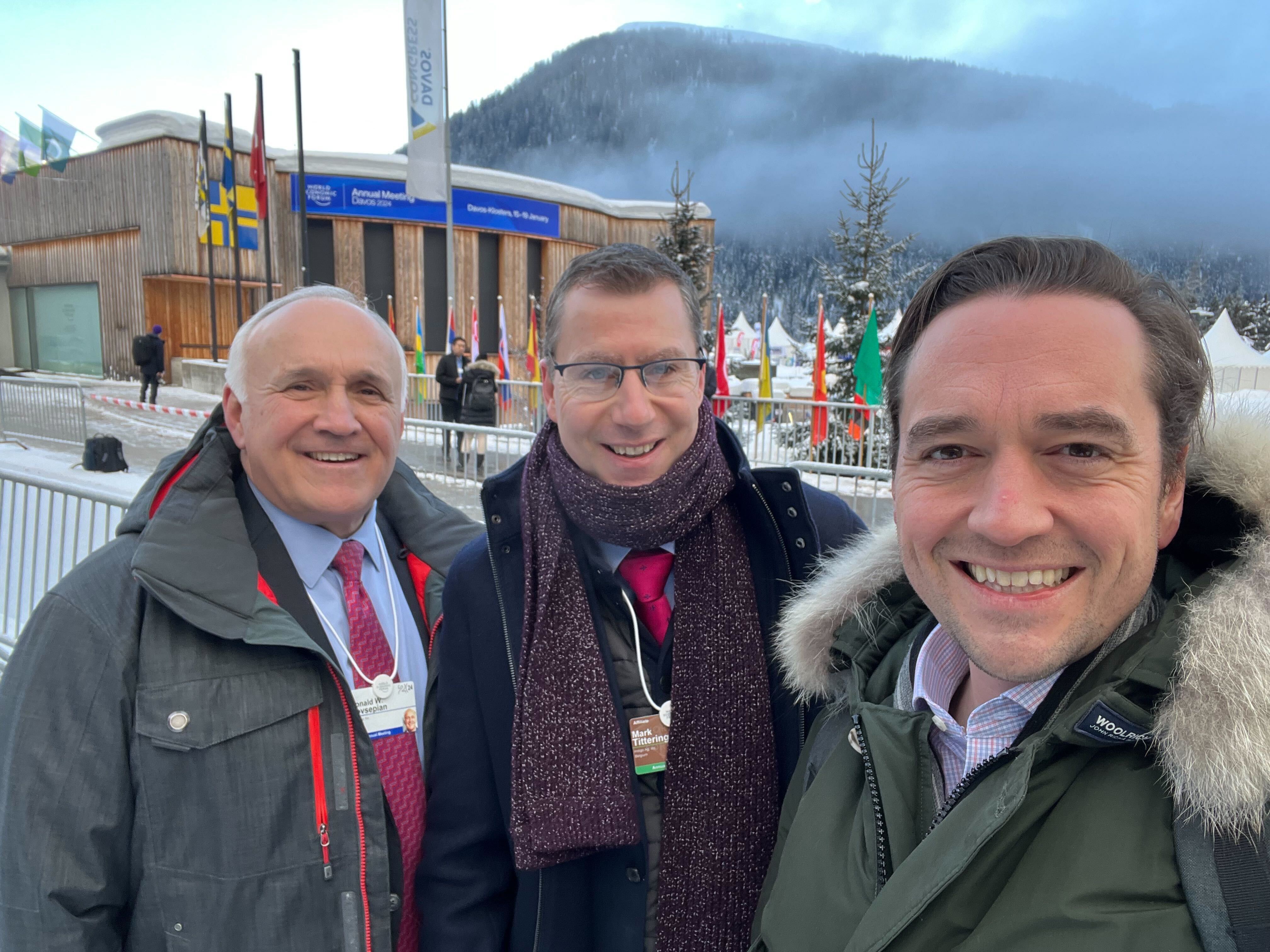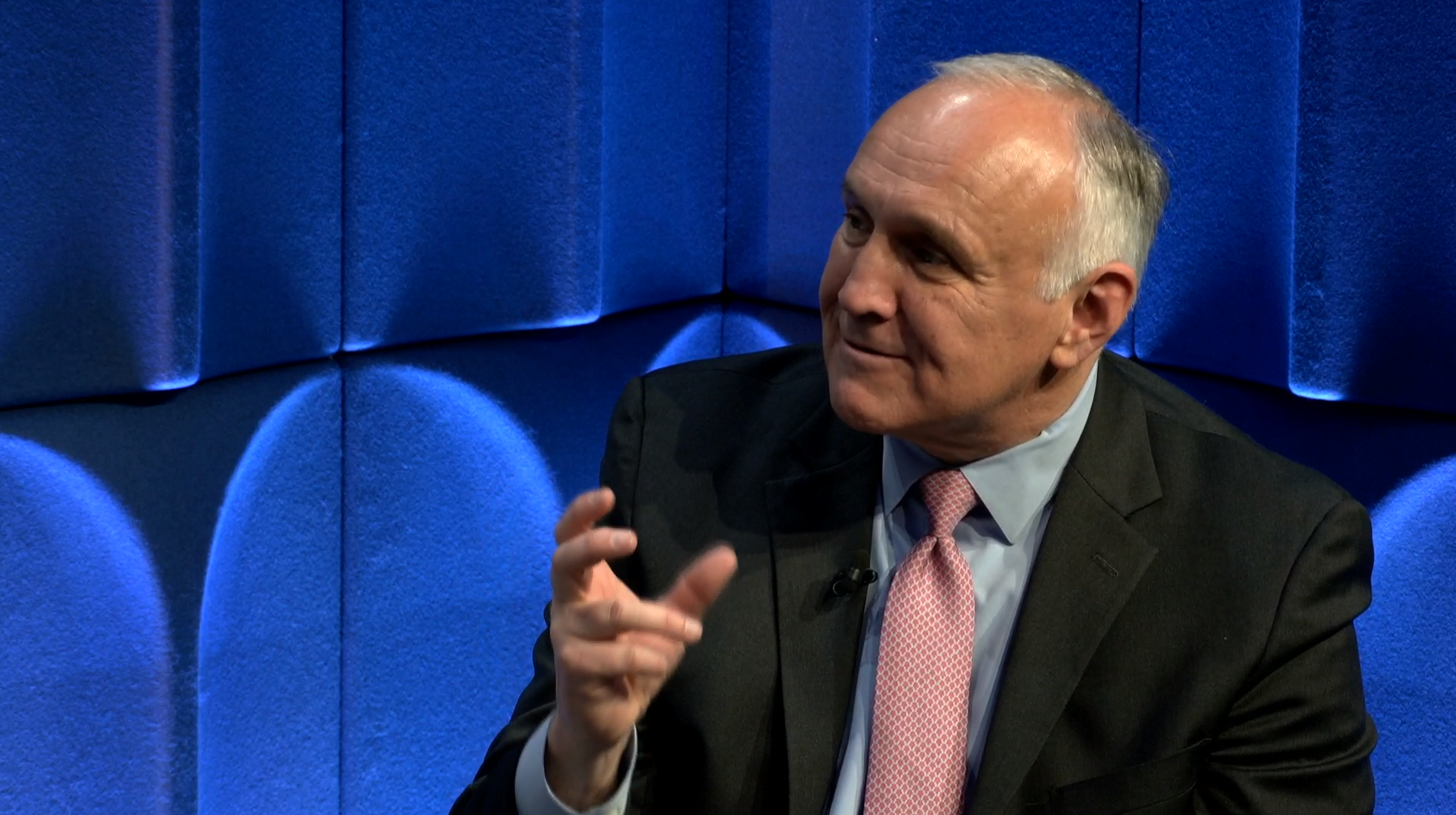As Farmers Protest in the Streets of Europe, 4 Takeaways from Davos
This year’s annual meeting of the World Economic Forum in Davos, Switzerland, provided a truly unique opportunity to engage with and identify the path forward on some of the most pressing topics on the social, economic and environmental agenda, including for food and agriculture. The urgency of acting on some of these important topics facing farmers is being amplified by the protests that have sprung up in parts of Europe by farmers over policy changes, their share of the value which they create, input prices, the impact of a changing climate and other hardships.

The Indigo Ag delegation at the World Economic Forum in Davos, Switzerland in January 2024: Ron Hovsepian, Mark Titterington, Ewan Lamont
This year’s meeting seemed therefore to take on an added importance with the topic of food and agriculture perhaps the most prominent it has ever been on the WEF Annual meeting agenda. I very much appreciated being part of the numerous working groups on how we better account for and value nature and ecosystem services and how we finance the transition to a more resilient, sustainable food and agriculture system. It was great to see the number of direct and indirect initiatives—many underpinned by advances in data, digitalization and AI—now taking place or in development. These can certainly contribute to a more resilient, sustainable, climate smart and nature positive food and agriculture system.
For me, though, there were a number of key takeaways:
- Nature, as well as climate, is fast finding its way onto the balance sheet and many companies and organizations will need help not only in their accounting but in their mitigation and adaptation strategies.
- It's vital that we turn the theory into action, that we are prepared to experiment and fail-fast, but also move quickly from pilot to scale where there is sufficient proof of success.
- Companies like Indigo Ag are extremely well placed, perhaps uniquely so, to help in this effort.
- We need to approach this all in a systemic rather than piecemeal way and take on challenges, especially in the area of enabling public policies, which can often seem intractable.
But at the center of all this is the need to ensure that farmers, ranchers and land managers are supported and financially rewarded for adopting and sustaining the practices that are good for the environment and good for the climate. There is no path forward in the agri-food system without our farmers and land managers, and yet we often seem to ignore their economic realities. As leading regenerative ag farmer Philippe Birker, co-founder of Climate Farmers, recently pointed out (before the latest protests in Germany and other parts of the Western Europe), the share of the money that farmers actually received from the amount spent by consumers on eggs, bread, meat and milk has dramatically declined since 1970.

"We need a durable economic incentive that incentivizes farmers around the world to transition—and maintain—regenerative practices. If we are asking farmers to do all the work and take on all the risk of this transition, they should be properly compensated for the ecosystem services they are providing for the planet,” said Indigo Ag CEO Ron Hovespian at the World Economic Forum panel “Putting a Price on Nature”


